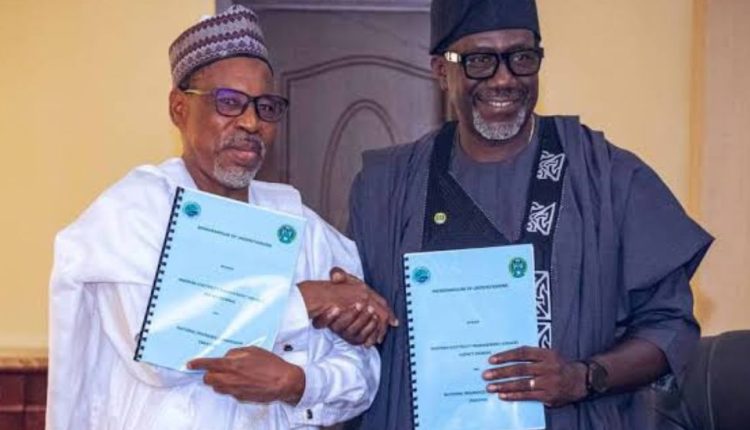Picture credit: Voice of Nigeria
The National Insurance Commission (NAICOM) and the Nigerian Electricity Management Services Agency (NEMSA) have formalized a strategic partnership aimed at improving electrical safety and ensuring compliance with insurance regulations.
In a statement issued on Friday, NAICOM announced the signing of a Memorandum of Understanding (MoU) designed to establish a framework for collaboration between both agencies. The partnership prioritizes protecting lives and property by addressing risks associated with electrical installations.
Speaking at the signing ceremony at NAICOM’s headquarters, NEMSA’s Managing Director and Chief Executive Officer, Aliyu Tahir, emphasized the agency’s role in enforcing technical standards, conducting inspections, and certifying electrical installations. He highlighted the importance of working with NAICOM to enhance safety and reduce risks.
The agreement outlines key areas of collaboration such as both agencies will cooperate to improve public safety and protect lives and property, NEMSA will oversee the certification of electrical installations in residential, commercial, and industrial properties, ensuring they meet required safety standards and are insured by licensed insurance companies.
Also, the partnership will ensure to minimize risks, safeguard investments, and promote economic stability.
NAICOM’s Commissioner for Insurance, Olusegun Omosehin, described the MoU as a milestone initiative that strengthens industry collaboration and regulatory enforcement. He reaffirmed NAICOM’s dedication to ensuring compliance across the sector.
Deputy Commissioner for Insurance (Technical), Dr. Usman Jankara, also assured NEMSA of NAICOM’s commitment to achieving the partnership’s objectives, stressing the need for teamwork in implementing safety measures.
The MoU marks a significant step in enhancing electrical safety and enforcing insurance regulations in Nigeria.
Established under the NEMSA Act 2015 (now the Electricity Act 2023), NEMSA is responsible for enforcing technical standards, inspecting, testing, and certifying electrical installations and equipment.
Its goal is to ensure a stable and safe electricity supply while eliminating substandard materials, preventing electrical hazards, and holding installation personnel to high professional standards.


